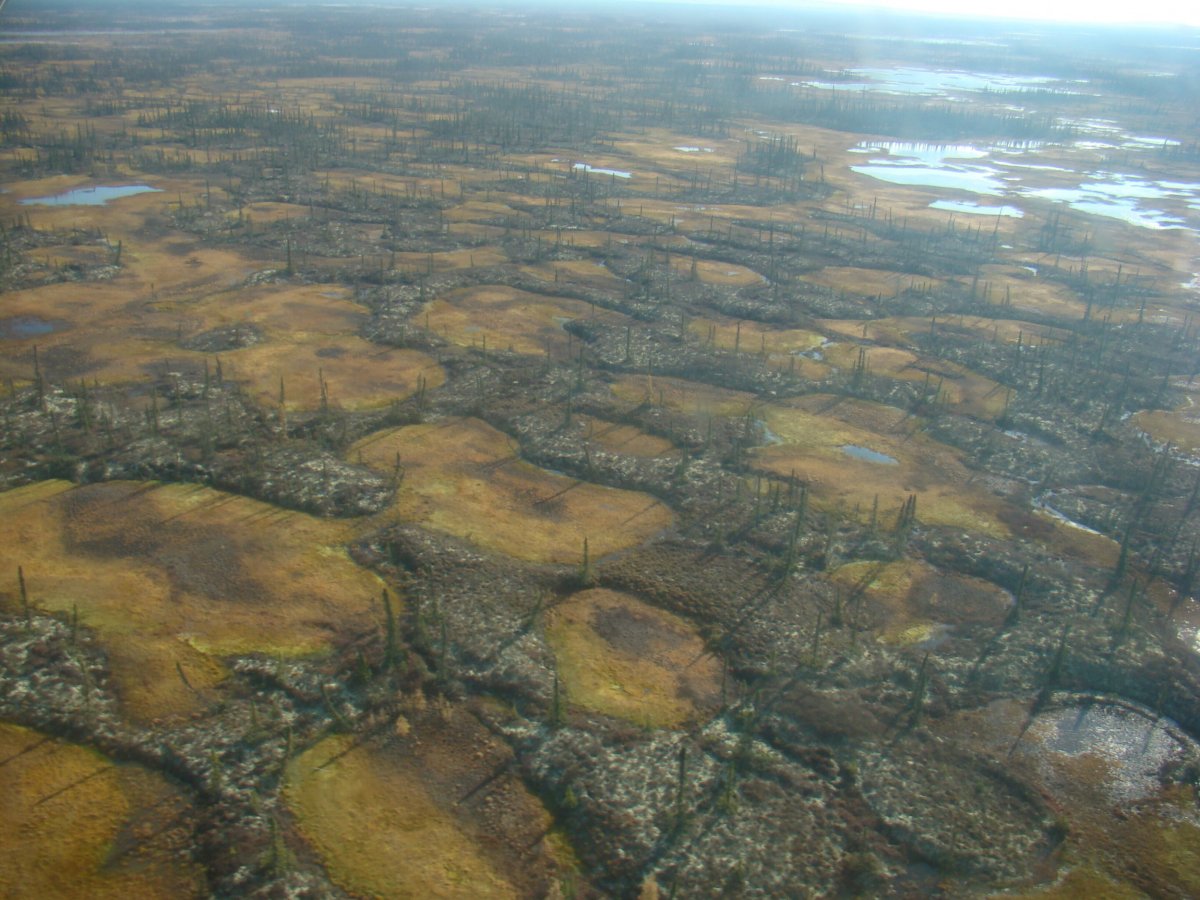Rapid thawing of permafrost in the Arctic is having a significant impact on the landscape and ecology of the region, research suggests.
Furthermore, this rapid thawing could mean that more carbon dioxide is being released into the atmosphere than previously thought, according to a study published in the journal Nature Geoscience.
In fact, the authors say that potential carbon emissions from permafrost thaw could be around double some currently accepted estimates.
Permafrost is ground that remains frozen for a period of two or more years. These areas are commonly found at Earth's high latitudes near the North and South Poles. In the Northern Hemisphere, almost a quarter of the land area has permafrost below the surface layer.
Permafrost ground consists of a combination of soil, rocks and sand, all of which are held together by ice. Closer to the surface, permafrost also contains significant amounts of organic carbon-based material left over from dead plants, animals and microbes which can't decompose because temperatures are too cold.
The presence of this organic material in permafrost soils has significant implications for the Earth's climate. With global temperatures on the rise, permafrost is beginning to thaw over increasingly larger areas—and this process releases greenhouse gases, like carbon dioxide and methane, into the atmosphere as microorganisms begin to break down organic matter in the soil.
Significantly, research indicates that the Arctic region—which is thought to contain around 1.6 billion tons of carbon in its permafrost—is warming around twice as fast the global average. In some cases, soils are even thawing for the first time in thousands of years.
In the latest study, the researchers describe two different kinds of permafrost thaw: gradual and abrupt. While gradual thaw may affect a few inches of ground per year, abrupt thaw can destabilize several feet within the space of weeks or months.
Around 20 percent of the Arctic region could be susceptible to abrupt permafrost thaw, and this could have a significant impact on the landscape.
This kind of thawing is "fast and dramatic, affecting landscapes in unprecedented ways," Merritt Turetsky, lead author of the study from the University of Colorado Boulder and the University of Guelph, said in a statement. "Forests can become lakes in the course of a month, landslides occur with no warning, and invisible methane seep holes can swallow snowmobiles whole."

"Systems that you could walk on with regular hiking boots and that were dry enough to support tree growth when frozen can thaw, and now all of a sudden these ecosystems turn into a soupy mess," Turetsky added.
This process leaves behind a landscape referred to as "thermokarst" by the researchers—one that is dotted with erosion and sinkholes. Currently, no climate models take into account the environmental impact of thermokarst landscapes, even though abrupt permafrost thaw is responsible for the release of large quantities of greenhouse gases.
In fact, emissions from abrupt thaw—which only affects less than five percent of the Arctic at any one time—are equal to those from areas experiencing gradual thaw.
"The impacts from abrupt thaw are not represented in any existing global model and our findings indicate that this could amplify the permafrost climate-carbon feedback by up to a factor of two, thereby exacerbating the problem of permissible emissions to stay below specific climate change targets," David Lawrence, another author of the study from the National Center for Atmospheric Research, said in the statement.
Uncommon Knowledge
Newsweek is committed to challenging conventional wisdom and finding connections in the search for common ground.
Newsweek is committed to challenging conventional wisdom and finding connections in the search for common ground.
About the writer
Aristos is a Newsweek science reporter with the London, U.K., bureau. He reports on science and health topics, including; animal, ... Read more
To read how Newsweek uses AI as a newsroom tool, Click here.








